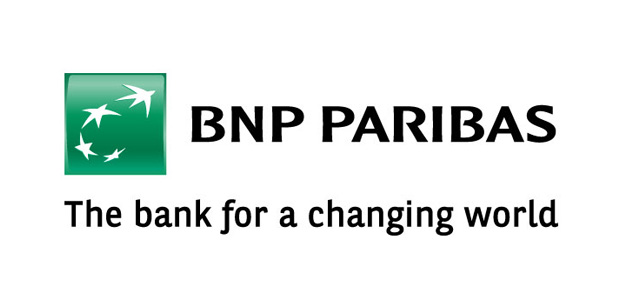Private Equity Titans: Reshaping Finance's Landscape, One Deal at a Time
Finance
2025-04-17 10:03:05Content

In the high-stakes world of alternative investments, private equity firms like Blackstone, KKR, Apollo Global Management, and Carlyle have long promised a steady hand when public markets become turbulent. Yet, as recent market volatility triggered by global trade tensions unfolds, these financial powerhouses are finding it challenging to maintain their carefully crafted image of calm and strategic resilience.
Once known simply as buyout firms, these financial giants have rebranded themselves as sophisticated alternative asset managers, positioning their approach as a more nuanced and sophisticated alternative to traditional investment strategies. However, the current market landscape is testing their narrative, with stock performance failing to substantiate their claims of superior market navigation.
Despite their reputation for patience and long-term thinking, these firms are discovering that insulating themselves from market panic is far more complex than their polished marketing materials suggest. The recent economic turbulence has exposed the delicate balance between their promised stability and the harsh realities of global financial dynamics.
As investors watch closely, the performance of these private equity titans will reveal whether they can truly deliver on their promise of being a more resilient investment option in an increasingly unpredictable economic environment.
Wall Street's Hidden Titans: The Evolving Landscape of Alternative Asset Management
In the high-stakes world of financial investments, private equity firms are navigating unprecedented challenges, transforming traditional investment paradigms while confronting market volatility with strategic resilience and innovative approaches.Reshaping Financial Strategies in Turbulent Markets
The Transformation of Private Equity Powerhouses
Private equity giants like Blackstone, KKR, Apollo Global Management, and Carlyle are experiencing a profound metamorphosis in their operational strategies. These institutions are no longer simply buyout firms but have evolved into sophisticated alternative asset management platforms. Their transformation reflects a complex interplay of market dynamics, technological disruption, and strategic repositioning. The traditional model of private equity has been fundamentally challenged by global economic uncertainties. These firms are now required to demonstrate unprecedented adaptability, leveraging advanced analytics, deep market insights, and agile investment frameworks to maintain competitive advantages.Market Volatility and Investor Confidence
Recent economic turbulence, characterized by trade tensions and geopolitical uncertainties, has created a challenging environment for alternative asset managers. Investors are increasingly scrutinizing performance metrics, demanding transparency, and seeking robust risk management strategies. The stock market's reaction to these firms has been notably complex. Despite claims of superior investment models, their market valuations have experienced significant fluctuations, reflecting broader economic uncertainties and investor skepticism.Technological Innovation and Strategic Repositioning
Leading private equity firms are investing heavily in technological infrastructure, artificial intelligence, and data-driven decision-making processes. This technological integration allows for more sophisticated risk assessment, predictive modeling, and strategic investment allocation. By embracing digital transformation, these firms are creating more sophisticated investment ecosystems that transcend traditional financial boundaries. Machine learning algorithms, advanced predictive analytics, and real-time market monitoring are becoming integral components of their investment strategies.Global Economic Landscape and Investment Strategies
The current global economic environment demands unprecedented flexibility and strategic nuance. Private equity firms are increasingly diversifying their portfolios, exploring emerging markets, and developing more complex investment vehicles that can withstand economic volatility. Geopolitical tensions, trade disruptions, and rapidly changing regulatory environments require these firms to develop more adaptive and resilient investment frameworks. This involves not just financial acumen but also deep geopolitical understanding and strategic foresight.Investor Expectations and Performance Metrics
Modern investors are demanding more than traditional performance metrics. They seek comprehensive sustainability strategies, ethical investment approaches, and demonstrable social impact alongside financial returns. Private equity firms are responding by integrating environmental, social, and governance (ESG) criteria into their investment decision-making processes. This holistic approach represents a significant departure from previous investment paradigms, reflecting a more nuanced understanding of long-term value creation.Future Outlook and Strategic Challenges
The future of alternative asset management will be defined by those firms capable of seamlessly integrating technological innovation, strategic flexibility, and comprehensive market understanding. Success will depend on their ability to anticipate market shifts, develop sophisticated investment strategies, and maintain investor confidence during periods of significant economic uncertainty. As global markets continue to evolve, private equity firms must remain agile, innovative, and committed to delivering value in increasingly complex and interconnected financial landscapes.RELATED NEWS
Finance

HSBC Weathers Profit Storm: Q1 Earnings Slip 25% But Outperform Wall Street Expectations
2025-04-29 04:10:12
Finance

Market Pulse: Wall Street Holds Breath as Inflation Cools and Trade Tensions Simmer
2025-03-12 22:56:06






